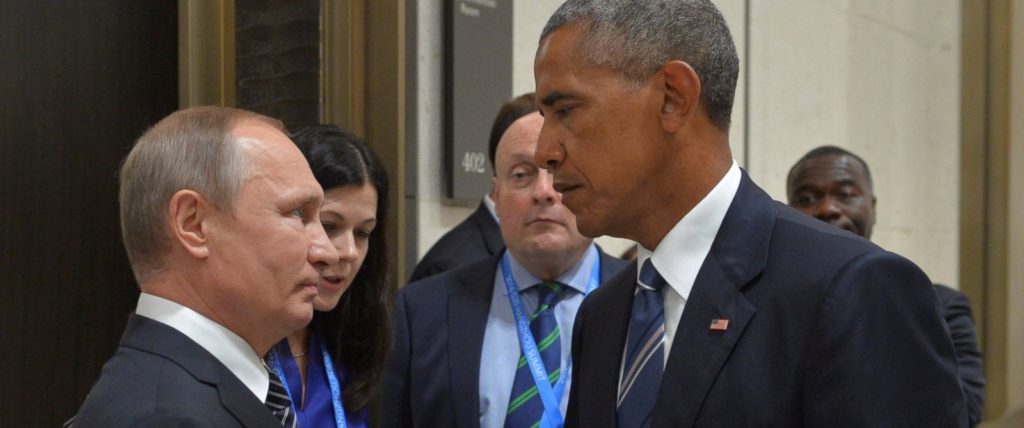President Obama has issued an executive order that levies a multitude of sanctions against Russia in retaliation for what the president calls, “the Russian government’s aggressive harassment of U.S. officials and cyber operations aimed at the U.S. election.”
The sweeping sanctions include the expelling of Russian operatives and sanctions levied against multiple Russian entities, including intelligence agencies.
In a statement, Obama announced he was expelling 35 Russian intelligence operatives from the U.S. who are now labeled as “persona non grata.” They’ve been given 72 hours to leave the country.
Read the statement by @POTUS on U.S. actions in response to Russian malicious cyber activity and harassment:https://t.co/4IO178lrkW pic.twitter.com/nRBYmhyNVz
— The White House (@WhiteHouse) December 29, 2016
He also announced sanctions against the Main Intelligence Administration (GRU) and the Federal Security Service (FSB), two of Russia’s leading intelligence services, as well as four GRU officers.
The New York Times identified the four officers as:
Igor Valentinovich Korobov, the current chief of a military intelligence agency, the G.R.U., and three deputies: Sergey Aleksandrovich Gizunov, the deputy chief of the G.R.U.; Igor Olegovich Kostyukov, a first deputy chief, and Vladimir Stepanovich Alekseyev, also a first deputy chief of the G.R.U.
Three other companies that supported the GRU in its operations were also sanctioned as were two other individuals, Alexei Belan and Yevgeny Bogachev, punished, per the president’s statement, “for using cyber-enabled means to cause misappropriation of funds and personal identifying information.”
The U.S. also closed two recreational facilities owned by Russia’s government, one in Maryland and one in New York, the U.S. said. The White House said Russia had been notified that Russia would be denied access to the sites starting at noon on Friday.
Obama also made it clear in his statement that this was not the last of the sanctions, saying the U.S. “will continue to take a variety of actions at a time and place of our choosing, some of which will not be publicized.”

Russian President Vladimir Putin’s spokesman, Dmitry Peskov, said the sanctions were part of Obama’s “unpredictable and, if I may say, aggressive foreign policy.”
He added, “We think that such steps by a U.S. administration that has three weeks left to work are aimed at two things: to further harm Russian-American ties, which are at a low point as it is, as well as, obviously, to deal a blow to the foreign policy plans of the incoming administration of the president-elect.”
In late July 2016, just ahead of the Democratic National Convention, the whistleblowing activist group WikiLeaks began releasing a cache of thousands of emails it had allegedly received from Russian hackers who broke into the DNC’s servers.
While both WikiLeaks and Russia have denied Russia’s involvement, that’s been the working theory from U.S. officials since the breach. In October, a month before the election, U.S. officials publicly accused Russia of the breach.
By early December, an assessment by the CIA took things a step further, alleging that not only did Russian hackers interfere in the election, but did so with the express intent of aiding GOP candidate Donald Trump. The CIA’s reasoning was that hackers accessed files of both Republicans and Democrats but only released information regarding Democratic candidate Hillary Clinton.
New @SpeakerRyan statement calls the Russia sanctions “overdue” and “appropriate.” pic.twitter.com/GOm9TY7B4Z
— Sahil Kapur (@sahilkapur) December 29, 2016
President Obama ordered a review of the hacks and went on the record in an interview with National Public Radio, threatening Russia with retaliation for the interference.
After the sanctions were announced on Thursday, Obama got bipartisan support from House Speaker Paul Ryan who called the sanctions “overdue.”




























